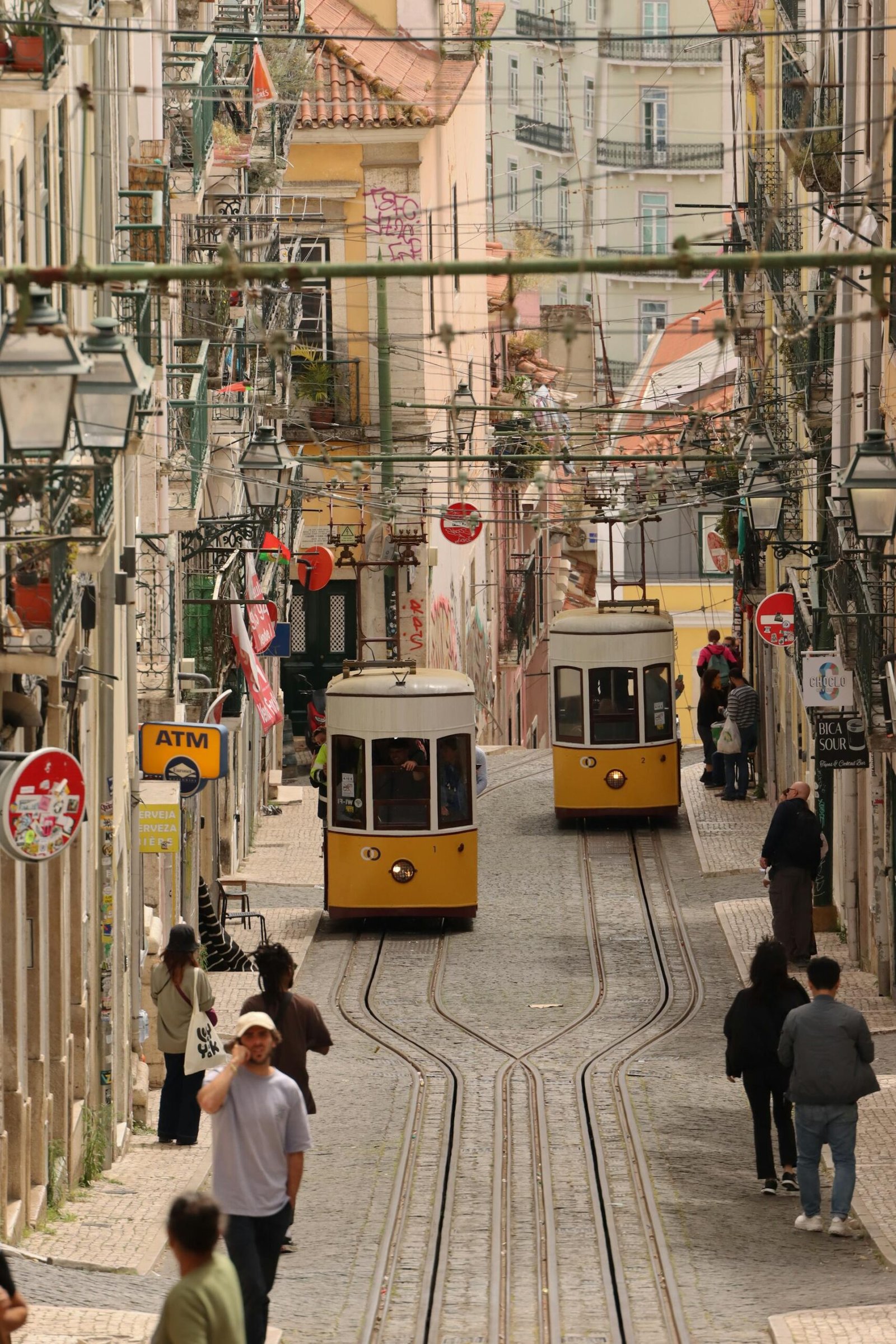Portugal, with its sun-drenched coasts, historic cities, and vibrant culture, has emerged as a top destination for digital nomads seeking a blend of affordability, natural beauty, and a welcoming atmosphere. While the ease of entry and the growing nomad community are appealing, a truly enriching and sustainable long-term stay goes far beyond just finding a comfortable co-working space and good Wi-Fi. It requires a genuine effort to understand and integrate into the local culture. Embracing Portuguese etiquette and learning even a few key phrases can transform your experience from that of a transient visitor to a respected, integrated member of the community, unlocking deeper connections and smoother daily life.
Why Cultural Immersion Matters for Long-Term Nomads
For short-term tourists, superficial interactions might suffice. But for digital nomads planning to spend months or even years in Portugal, a deeper cultural understanding becomes a fundamental cornerstone of well-being and success.
Benefits of Cultural and Linguistic Effort
- Deeper Connections: Locals appreciate the effort. It opens doors to genuine friendships, not just polite exchanges.
- Smoother Daily Life: Navigating markets, local shops, public transport, and bureaucratic tasks becomes significantly less stressful.
- Avoiding Misunderstandings: Cultural nuances can prevent unintentional offense or confusion in social and professional settings.
- Enhanced Experiences: Understanding local customs, humor, and traditions enriches your travel memories far beyond tourist traps.
- Professional Advantages: If you interact with Portuguese clients or colleagues, cultural sensitivity builds trust and rapport.
- Sense of Belonging: Feeling genuinely connected to your temporary home reduces feelings of isolation and loneliness.
Essential Portuguese Etiquette: The Unwritten Rules
Portuguese culture values politeness, respect, and a certain level of formality, especially in initial interactions. Observing these unwritten rules will smooth your integration.
1. Greetings are Paramount
- Time-Specific Salutations: Always use “Bom dia” (Good morning/until midday), “Boa tarde” (Good afternoon/evening, until sunset), and “Boa noite” (Good night/evening after sunset). It’s considered impolite to use “Olá” as a universal greeting with strangers.
- Physical Greetings:
- Two Kisses: For women greeting other women, or women greeting men, two kisses on the cheek (starting right) are common.
- Handshake: Men typically shake hands with other men, especially in formal or initial contexts.
- Warmth: Ensure your greeting is accompanied by a smile and direct eye contact.
2. Politeness and Formality
- “Por favor” (Please) & “Obrigado/a” (Thank you): Use these liberally. “Obrigado” if you are male, “Obrigada” if you are female. This is a crucial distinction.
- Addressing Elders/Superiors: Use “Senhor” (Mr.) and “Senhora” (Ms./Mrs.) followed by their first name or just “Senhor/Senhora.” Avoid overly casual address until invited.
- Patience and Calm: Portuguese people generally value a calm demeanor. Raising your voice or showing extreme frustration is often counterproductive.
3. Dining Etiquette
- Waiting to be Seated: In more formal restaurants, wait to be seated by staff.
- Table Manners: Keep hands visible (but not elbows on the table). Wait for everyone to be served before starting to eat.
- Bread and Covertures: Don’t be surprised by bread, olives, or cheese appearing at your table. These are usually charged, so politely decline if you don’t want them.
- Tipping: Tipping isn’t as mandatory as in some countries but is appreciated for good service (around 5-10% in restaurants, rounding up for taxis).
- Coffee Culture: Portuguese coffee is strong and consumed quickly. It’s a social ritual, not a prolonged affair, often standing at the counter.
4. Punctuality & Time
- Relaxed Social Punctuality: For social gatherings, being 10-15 minutes late is generally acceptable, sometimes even expected.
- Professional Punctuality: For business meetings or appointments, punctuality is respected.
- “Já vou” (I’m coming/I’ll be right there): Understand that this phrase might mean “soon” rather than “immediately.”
5. Personal Space and Communication
- Closer Proximity: Portuguese people generally stand closer when conversing than people from some Northern European or North American cultures. Don’t instinctively back away.
- Indirect Communication: Sometimes, requests or criticisms might be communicated indirectly or subtly. Pay attention to tone and context.
- National Pride: Portuguese people are proud of their history, culture, and especially their football team. Expressing genuine interest or admiration is well-received. Avoid direct criticism of their country or culture.
Key Portuguese Phrases for Daily Life & Integration
While many Portuguese, especially younger generations in cities, speak excellent English, making an effort to speak Portuguese shows respect and opens up more authentic interactions. Focus on conversational basics.
Essential Phrases to Master
- Greetings & Farewells:
- Bom dia / Boa tarde / Boa noite (Good morning/afternoon/night)
- Olá (Hello – more casual, for friends)
- Adeus (Goodbye)
- Até já / Até logo (See you soon)
- Como está? (How are you? – formal) / Tudo bem? (All good? – informal)
- Politeness:
- Por favor (Please)
- Obrigado/Obrigada (Thank you – male/female speaker)
- De nada (You’re welcome)
- Com licença (Excuse me – to pass by)
- Desculpe (Excuse me / Sorry – for apologies or getting attention)
- Food & Drink:
- Um café, por favor. (A coffee, please.)
- Uma bica (An espresso, common in Lisbon)
- Uma cerveja (A beer)
- A conta, por favor. (The bill, please.)
- Muito bom! (Very good! – for food)
- Shopping & Transactions:
- Quanto custa? (How much does it cost?)
- Pode repetir, por favor? (Can you repeat, please?)
- Sim (Yes) / Não (No)
- Falo um pouco de português. (I speak a little Portuguese.)
- Não falo português. (I don’t speak Portuguese.)
- Asking for Directions:
- Onde é…? (Where is…?)
- À direita (To the right) / À esquerda (To the left)
- Em frente (Straight ahead)
Tips for Learning
- Start with Basics: Focus on greetings, polite phrases, and numbers.
- Immersion: Listen to Portuguese music, watch local TV with subtitles, and try to converse with locals.
- Language Exchange: Find language exchange partners in local meetups.
- Apps & Online Courses: Utilize apps like Duolingo or Memrise, or online courses.
- Don’t Be Afraid to Make Mistakes: Locals appreciate the effort more than perfect grammar.
Navigating Social Situations & Building Relationships
Building deeper social connections in Portugal takes time and patience, but it’s incredibly rewarding.
From Acquaintance to Friend
- Initial Reservedness: Portuguese people can be initially reserved with strangers. Don’t mistake this for unfriendliness.
- Warmth and Hospitality: Once you break through the initial barrier, you’ll find them incredibly warm, generous, and hospitable.
- The Role of Food & Drink: Sharing meals, coffee, or drinks is central to socializing. Accepting invitations is a great way to bond.
- Family & Friends: Family ties are strong. Once you’re accepted, you might find yourself welcomed into wider family and friend circles.
- Patience is a Virtue: Building deep friendships takes longer than casual acquaintances. Be persistent, show genuine interest, and invest time.
Leveraging Resources for Deeper Cultural Understanding
Beyond personal effort, numerous resources can aid your cultural journey. For digital nomads seeking to truly integrate into their temporary homes, exploring comprehensive Local Culture Guides for Digital Nomads is an invaluable step. Such guides go beyond basic tourist information, delving into local customs, social norms, historical context, and even practical tips for navigating daily life like a local. They often provide insights into community building strategies tailored to specific regions, advice on understanding local humor, and recommendations for authentic cultural experiences. Accessing these specialized resources can significantly enhance your ability to adapt, connect, and thrive within the nuances of Portuguese society, transforming your long-term stay from a mere visit into a genuine living experience.
Final Thoughts: Your Passport to Portuguese Life
Spending a long term in Portugal offers an incredible opportunity not just to explore a beautiful country, but to truly live within its vibrant culture. While the initial steps of navigating new social codes and linguistic nuances might feel daunting, the effort is profoundly rewarding. By embracing Portuguese etiquette with respect and learning key phrases that facilitate daily interactions, you unlock a richer, more authentic experience. You’ll move beyond the surface, forge deeper connections, and gain a profound appreciation for the warmth and beauty of Portuguese life. Your willingness to immerse yourself is your true passport to becoming part of the local fabric, making your digital nomad journey in Portugal truly unforgettable.







